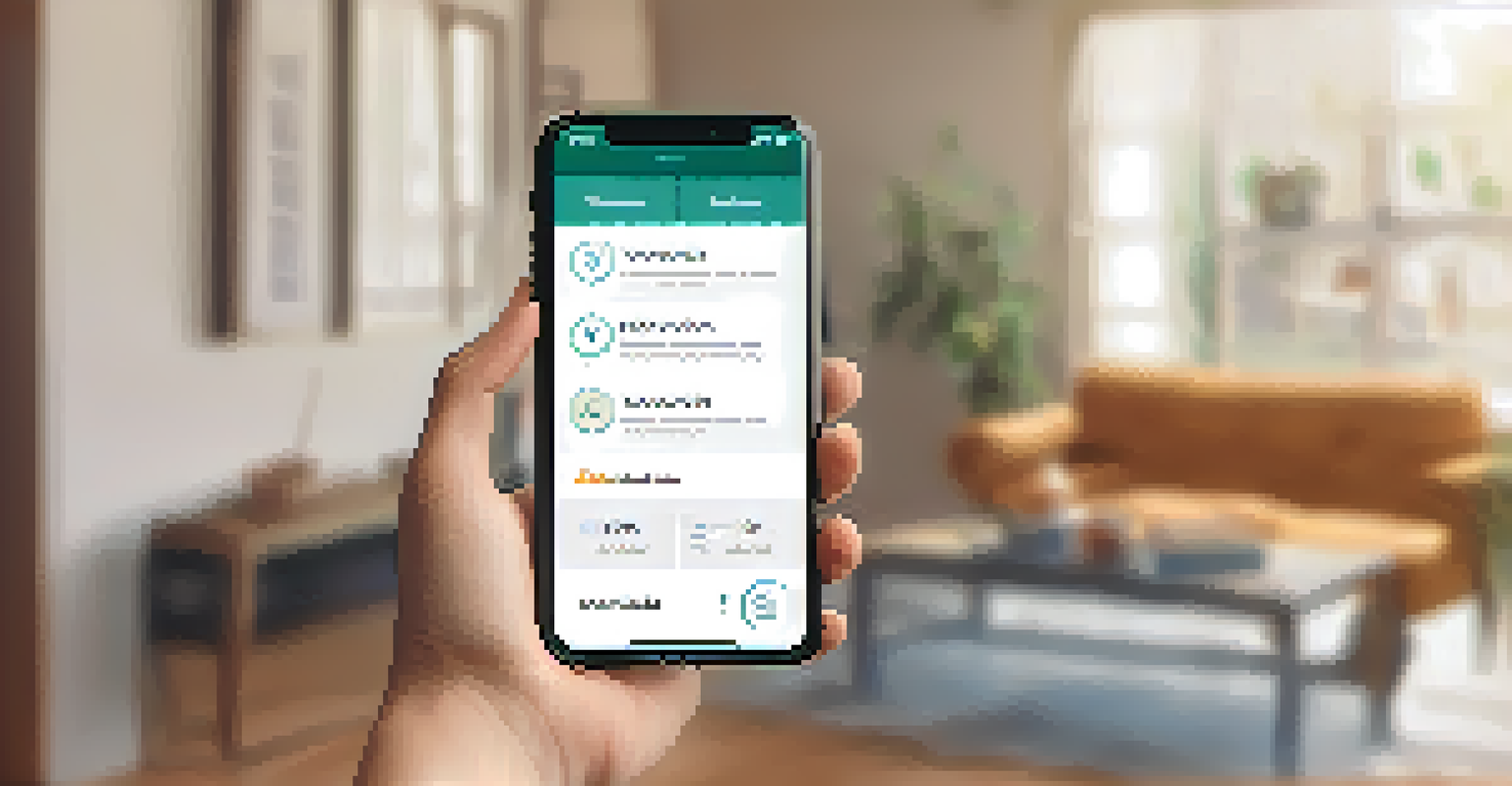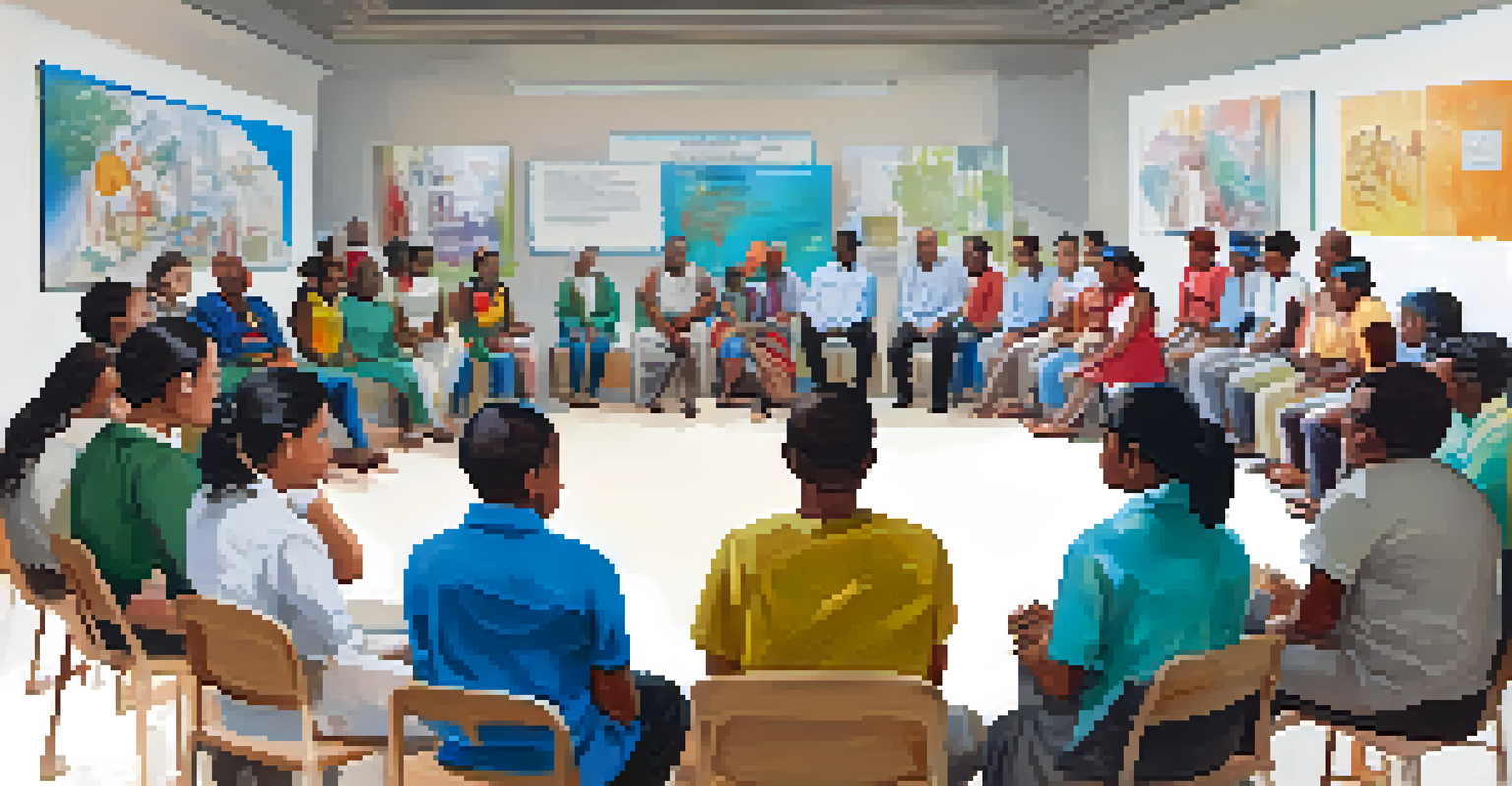The Role of Nonprofits in Advancing Health Literacy

Understanding Health Literacy and Its Importance
Health literacy refers to the ability to access, comprehend, and use health information effectively. It's crucial for making informed decisions about care and treatment. Low health literacy can lead to confusion, poor health outcomes, and increased healthcare costs.
Health literacy is the foundation for understanding health information, making informed decisions, and taking action to improve health outcomes.
Imagine walking into a pharmacy and being unable to understand the dosage instructions on a medication label. This scenario highlights the importance of health literacy in everyday life. When individuals lack this skill, they may struggle with managing their health effectively.
Improving health literacy empowers individuals to take charge of their health. It ensures they can navigate the healthcare system, understand their rights, and communicate effectively with healthcare providers.
The Unique Position of Nonprofits in Health Education
Nonprofit organizations play a vital role in bridging the gap in health literacy. They often serve communities that may lack access to essential resources and information. With their focus on education and outreach, nonprofits can tailor programs to meet the specific needs of their communities.

By hosting workshops, seminars, and informational campaigns, nonprofits create opportunities for individuals to learn about health issues. They often employ community health workers who understand the local culture and language, making the information more relatable and accessible.
Health Literacy Empowers Individuals
Improving health literacy enables individuals to make informed decisions about their health and effectively navigate the healthcare system.
Furthermore, nonprofits can advocate for policy changes that promote health literacy on a larger scale. They can collaborate with schools, healthcare facilities, and government agencies to ensure that accurate health information reaches those who need it most.
Strategies Nonprofits Use to Enhance Health Literacy
Nonprofits employ various strategies to enhance health literacy, including interactive workshops and community-based programs. For example, they might organize health fairs where individuals can learn about nutrition, exercise, and preventive care in a fun, engaging environment. This hands-on approach can make learning feel less intimidating.
The ability to access and understand health information is critical for effective healthcare management.
Additionally, nonprofits often leverage technology to reach a broader audience. They may develop user-friendly websites or mobile applications that provide reliable health information in an accessible format. This is especially helpful in an increasingly digital world where many seek information online.
Partnerships with local healthcare providers also enhance the effectiveness of these initiatives. By working together, nonprofits can ensure that the information shared is accurate and that community members have access to necessary resources.
Case Studies: Successful Nonprofit Initiatives
One notable example is the American Heart Association's efforts to improve heart health literacy. Through community outreach programs, they offer workshops focused on understanding blood pressure, managing cholesterol, and recognizing the signs of a heart attack. Their initiatives have proven successful in empowering individuals to take control of their heart health.
Another success story is the work done by the National Alliance on Mental Illness (NAMI). They provide resources and training to individuals and families affected by mental health issues, helping them navigate the complexities of the mental health system. Their educational programs have significantly increased awareness and understanding of mental health.
Nonprofits Bridge Health Literacy Gap
Nonprofit organizations play a crucial role in enhancing health literacy by providing tailored education and outreach programs to underserved communities.
These case studies illustrate the tangible impact nonprofits can have in advancing health literacy. By focusing on specific health issues and tailoring their programs, they make a real difference in communities.
Challenges Nonprofits Face in Promoting Health Literacy
Despite their vital role, nonprofits encounter several challenges in promoting health literacy. Funding limitations can restrict the scope of their programs, making it difficult to reach larger audiences. Without adequate resources, nonprofits may struggle to maintain consistent outreach efforts.
Additionally, misinformation can pose a significant barrier. With the rise of social media, individuals may encounter inaccurate health information, leading to confusion. Nonprofits must combat this by providing clear, evidence-based resources that counteract myths and misconceptions.
Lastly, reaching marginalized communities can be challenging due to language barriers and cultural differences. Nonprofits need to ensure their materials are accessible and culturally relevant to effectively engage diverse populations.
The Future of Health Literacy and Nonprofits
Looking ahead, the role of nonprofits in advancing health literacy is more crucial than ever. As healthcare continues to evolve, with new technologies and treatments, the need for clear communication becomes paramount. Nonprofits will need to adapt their strategies to keep pace with these changes.
Emerging technologies, such as telehealth and digital health tools, present both opportunities and challenges. Nonprofits can harness these tools to reach wider audiences while ensuring that the information remains clear and accessible for all.
Challenges Nonprofits Face
Nonprofits encounter funding limitations, misinformation, and cultural barriers that hinder their efforts to promote health literacy effectively.
Collaboration will also play a key role in the future of health literacy. By partnering with healthcare providers, educational institutions, and other organizations, nonprofits can create comprehensive initiatives that effectively address the needs of their communities.
How You Can Support Nonprofits in Their Mission
Supporting nonprofits in their mission to advance health literacy can take many forms. Volunteering your time for local health education programs is one impactful way to contribute. Whether helping at a health fair or participating in community outreach, your involvement can make a difference.
Donating to nonprofit organizations that focus on health literacy is another significant way to support their work. Financial contributions enable these organizations to expand their programs and reach more people in need. Even small donations can have a big impact.

Lastly, spreading the word about health literacy and the work of nonprofits can help raise awareness. Sharing information on social media or among your community can encourage others to get involved and support these vital initiatives.